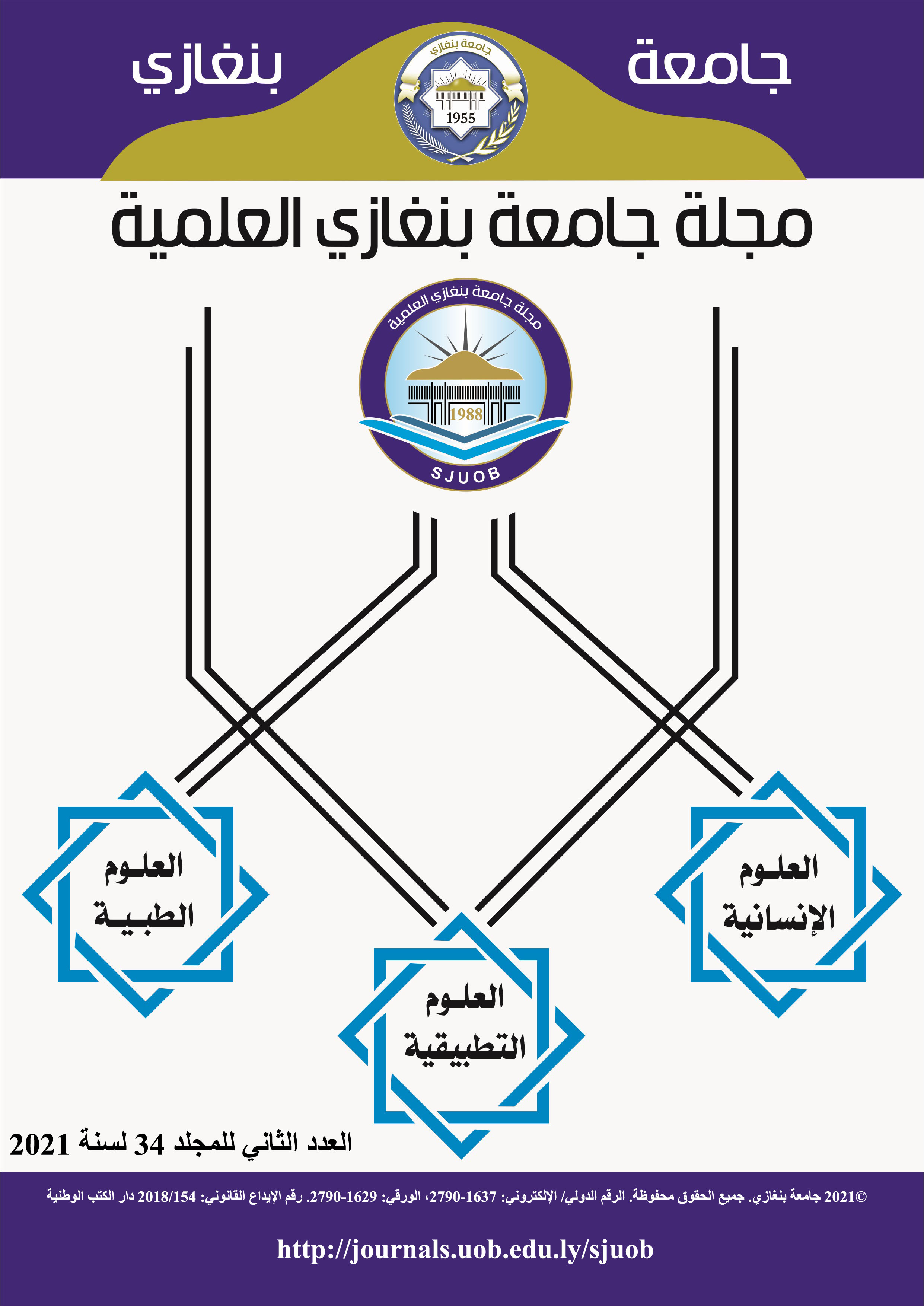Self-Medication among Undergraduate Pharmacy Students at the University of Benghazi- Libya
DOI:
https://doi.org/10.37376/sjuob.v34i2.3232Keywords:
self-medication, pharmacy, Libya, students.Abstract
Irresponsible self-medication is associated with many potential risks such as antimicrobial resistance, adverse drug reactions, drug dependence, prolonged patient suffering and waste of resources. This practice is commonly reported among university students. This study was undertaken to determine the patterns of self-medication among undergraduate pharmacy students at the University of Benghazi, Libya. A cross-sectional survey via a self-administered questionnaire was carried out at the Faculty of Pharmacy at the University of Benghazi, Libya over a period of three months. Students were asked about their patterns of self-medication in the last 12 months preceding the study. The participants were asked questions related to several areas, such as symptoms that provoked self-medication, classes of self-administered medications, reasons for indulging in the practice and sources of advice regarding self-medication. The prevalence of self-medication in the study's population was found to be at 87.9%. Headache, cold, cough and fever were the most commonly self- medicated symptoms. The major classes of self-administered medications were analgesics, cold and cough preparations and antipyretics. The study also revealed that most participants indulged in self-medication because they believed their illness was minor and the majority obtained the necessary medication information from pharmacists. The study revealed that self-medication is widely practised among the study population. Future recommendations include more efficient education programmes as well as stricter applications of the regulations of dispensing medication.
Downloads
Downloads
Published
How to Cite
Issue
Section
License
Copyright (c) 2022 The Scientific Journal of University of Benghazi

This work is licensed under a Creative Commons Attribution-NonCommercial-NoDerivatives 4.0 International License.



















